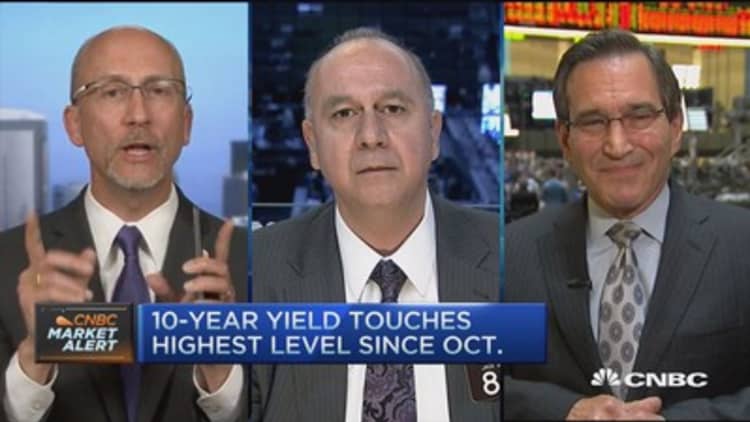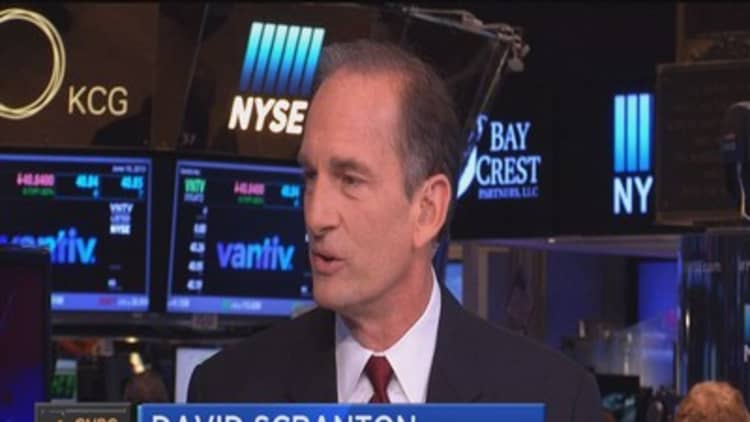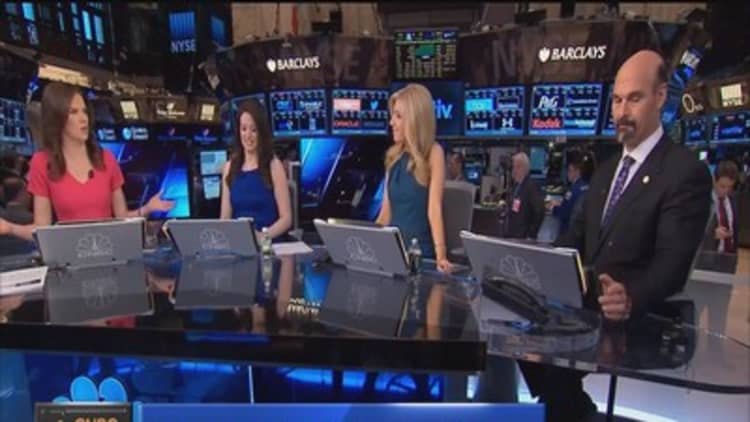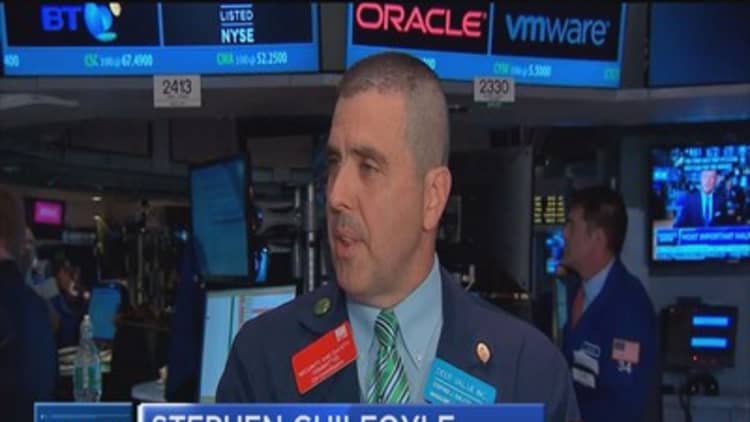



U.S. stocks rallied Wednesday, a move veteran market pro Jack Bouroudjian likened to a "spring that's been loading" and will soon catapult higher.
"What we're looking at is just a tsunami of capital" coming out of fixed income and other global markets and into the stock market, the chief investment officer for Index Financial Partners said in an interview with CNBC's "Closing Bell."
"This is the road to normalization. We finally got on it. It's going to be messy, but either way it's going to be good for equities."
Stocks closed up more than 1 percent Wednesday amid signs of encouraging developments in the Greece debt talks and better economic growth as yields continued to rally.
The biggest problem with the market right now is that there are still a lot of nonbelievers out there, said Bouroudjian, also a CNBC contributor.
Read More A broad rally, but buying enthusiasm is missing
Keith Fitz-Gerald, chief investment strategist at MoneyMorning.com, agrees.
"This has been the most reluctant bullish market in history and I think there's a lot of pent-up demand, there's a lot of people on the sidelines, there's a lot of money rotating around the world. That net net is an upward influence," he said.
However, investment strategist David Scranton thinks there will be a "decent" correction sometime before the end of the year.
That's because negative first-quarter gross domestic growth and interest rates are weighing on certain stocks.
"When markets start to turn, it's not as though all 500 stocks in the all turn downward at the same time. You get a few red arrows and then you get more red arrows and finally there becomes a critical mass," Scranton of Sound Income Strategies said.
Read MoreBill Gross: This is one of my best ideas
He also thinks investors need to keep an eye on for second-quarter GDP, which won't be out until mid-August. If it is negative, then the U.S. is formally considered in a recession, he noted.
"Once you put the recession label on the financial markets that's going to cause a slide," said Scranton.
—CNBC's Evelyn Cheng contributed to this report.


